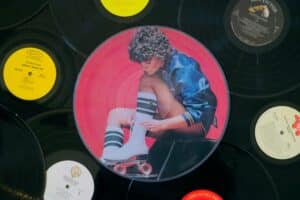Vans with Portholes, Corduroy Pants and Air Conditioning That Finally Worked
The 1970s marked a significant new era in the history of air conditioning, as technological advancements and societal changes reshaped the way people cooled their homes and workplaces. From the introduction of central air conditioning systems to the rise of energy efficiency as a national conversation, come with us in a time machine back to the era of shag haircuts, disco and a new era in HVAC. Air-Tro was there!
I’ll Be There: The Spread of Central Air Conditioning
During the 1970s, central air conditioning systems became increasingly popular, offering homeowners and businesses a convenient and effective way to cool large indoor spaces. Unlike window units or portable air conditioners, central systems provided consistent cooling throughout entire buildings, making them ideal for residential homes, commercial offices, and public spaces.
Boogie Oogie Oogie: Advancements in Energy Efficiency.
As energy conservation and environmental awareness gained traction in the 1970s, air conditioning manufacturers began focusing on improving the energy efficiency of their products. Innovations such as high-efficiency compressors, programmable thermostats, and better insulation materials helped reduce energy consumption and operating costs while minimizing environmental impact.
Hot Child in the City: the Introduction of R-22
During the 1970s, the refrigerant commonly used in air conditioning systems transitioned from R-12 (chlorofluorocarbon) to R-22 (hydrochlorofluorocarbon). This shift was driven by growing concerns about the ozone-depleting effects of R-12 and the need for more environmentally friendly alternatives. R-22 became the dominant refrigerant used in air conditioning systems throughout the decade until its phaseout due to its contribution to ozone depletion.
American Pie: Societal Change and HVAC
The widespread adoption of air conditioning in the 1970s not only transformed indoor comfort but also influenced societal trends and behaviors. The proliferation of air-conditioned spaces, including homes, shopping malls, and movie theaters, reshaped leisure activities and social interactions. Anyone grow up going to an indoor mall? Additionally, air conditioning played a role in urban development and migration patterns, as people realized they could live in hotter climates …with AC.
Stayin’ Alive: An Oil Crisis and Conservation
Despite its benefits, air conditioning during this time also presented many challenges and concerns. Rising energy costs, particularly during the oil crisis of the early 1970s, prompted calls for greater energy efficiency and conservation measures. Additionally, the use of R-22 refrigerant incurred environmental worries, leading to subsequent regulatory actions and phaseout schedules.
In addition to making certain clothing styles popular that we later came to regret, the 1970s reshaped the way people cooled their indoor environments. These trends laid the groundwork for the modern cooling systems we rely on even today.
Don’t leave the cake out in the rain! Call Air-Tro today. We’re the HVAC company the Southland trusts for all their heating and air conditioning needs, since 1969. (626)357-3535.
Whether you require installation, repair, or maintenance, our technicians will assist you with top-quality service at any time of the day or night. Take comfort in knowing your indoor air quality is the best it can be with MOE heating & cooling services Ontario's solution for heating, air conditioning, and ventilation that’s cooler than the rest.
Contact us to schedule a visit. Our qualified team of technicians, are always ready to help you and guide you for heating and cooling issues. Weather you want to replace an old furnace or install a brand new air conditioner, we are here to help you. Our main office is at Kitchener but we can service most of Ontario's cities
Source link



Add Comment